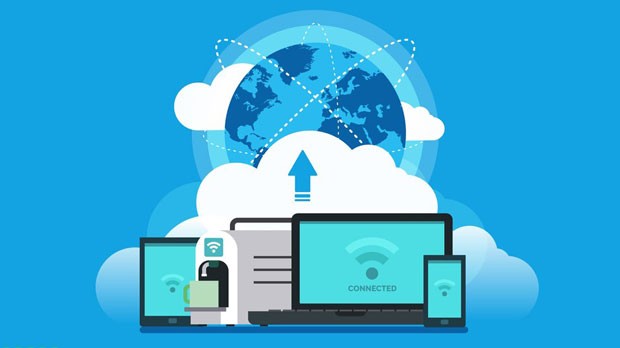In today's digital landscape, enterprises face increasing demand for secure and scalable internet connectivity solutions. sock s5 proxies, with their ability to provide anonymity and improved security, have become a crucial part of many businesses' IT infrastructure. The procurement of SOCKS5 proxies, especially when planned long-term, requires careful budgeting to ensure cost-efficiency, high availability, and robust performance. Developing a comprehensive procurement strategy for SOCKS5 proxies is crucial for businesses that rely on high-speed data transfer and need secure, private connections. In this article, we will discuss the process of how enterprises can develop an effective long-term socks5 proxy procurement budget, considering factors like usage volume, scalability, security, and performance requirements. 1. Understanding the Need for SOCKS5 ProxiesBefore diving into the procurement budgeting process, enterprises must first understand the specific need for SOCKS5 proxies within their operations. SOCKS5 proxies are used for various purposes, including bypassing geographical restrictions, enhancing security for online activities, automating internet tasks, and ensuring anonymous browsing. By identifying the primary use cases, enterprises can estimate the required number of proxies, the level of security needed, and the data throughput capacity. This initial understanding helps form the foundation of a well-planned budget.2. Estimating Usage Volume and CapacityOne of the first steps in determining the SOCKS5 proxy procurement budget is estimating the volume of traffic and the number of users who will require access to proxies. This step includes:- Traffic Estimation: Enterprises should assess their internet usage patterns, including peak and off-peak periods, and how much data will be transferred through the proxies.- User Base: The number of users accessing the proxies, their bandwidth needs, and the duration of their sessions are key factors in determining capacity requirements.Once these estimates are in place, businesses can identify how many proxies will be needed to meet the demand, considering potential growth over time. By assessing both current and future requirements, companies can avoid over- or under-provisioning, ensuring that the procurement budget is neither too low nor excessively high.3. Selecting the Right SOCKS5 Proxy ProviderChoosing a reliable SOCKS5 proxy provider is crucial for ensuring the stability and performance of the proxy network. When budgeting for proxy procurement, enterprises should factor in several key elements, including:- Provider Reliability: Companies should prioritize vendors with a strong reputation for uptime, reliability, and fast response times. This ensures that their proxies will remain available and performant even during high traffic periods.- Security Features: SOCKS5 proxies often provide additional security features, such as encryption and authentication, which help safeguard data and prevent unauthorized access. The procurement budget must account for these features to ensure data privacy and protection.- Scalability: As businesses grow, their demand for proxies may increase. A scalable solution that can easily handle an expanding user base or increased traffic volume is crucial. Enterprises should consider providers who offer flexible solutions that can grow with their business.- Customer Support: Good customer support is essential when dealing with technical issues related to proxies. Ensuring that support services are available 24/7 can be an important consideration when selecting a provider.Enterprises should compare several providers based on these factors and choose the one that offers the best combination of cost-effectiveness, performance, and support for long-term needs.4. Accounting for Security and Compliance CostsSecurity is a critical consideration when planning long-term SOCKS5 proxy budgets. Enterprises that handle sensitive data or need to comply with strict regulatory standards (e.g., GDPR, HIPAA) may face additional costs related to security and compliance. These costs could include:- Encryption Costs: SOCKS5 proxies often include encryption to ensure the secure transfer of data. If encryption is required for compliance, this will add to the procurement costs.- Data Privacy: In some cases, businesses may need proxies that meet specific data privacy standards, especially when handling user or customer information. The additional security features required to meet these standards can influence both the selection of proxies and the budget allocation.- Regular Audits and Monitoring: Some businesses may need to implement continuous monitoring or regular audits to ensure compliance with security regulations. These services, while often optional, should be factored into the budget if necessary.By accounting for these additional security and compliance costs upfront, enterprises can avoid unexpected expenses that could arise later during the procurement process.5. Determining Cost Efficiency and Financial FlexibilityOnce all the factors—such as traffic volume, user requirements, provider selection, and security needs—are accounted for, the next step is to determine the cost efficiency of the chosen SOCKS5 proxy solution. Enterprises should aim for a balance between affordability and the necessary performance features. Here are some strategies to consider:- Long-Term Contracts: Negotiating long-term contracts with SOCKS5 proxy providers can result in discounted pricing and more predictable costs. Enterprises should explore the possibility of locking in rates for multiple years to protect against price hikes.- Volume Discounts: Many providers offer discounts for bulk purchases or long-term commitments. By purchasing a higher volume of proxies upfront, businesses may save on overall procurement costs.- Flexibility: While long-term savings are important, enterprises should also consider flexibility in their budget. Budgeting for a little flexibility will allow businesses to adjust to changing needs, such as an increase in traffic or security requirements, without compromising on performance.By exploring these cost-saving opportunities, businesses can develop a budget that maximizes value while minimizing costs over time.6. Future-Proofing the Procurement StrategyThe digital landscape is constantly evolving, and businesses should plan for future changes when developing a SOCKS5 proxy procurement budget. Some considerations for future-proofing include:- Scalability Needs: As businesses expand and their internet usage grows, the number of proxies required may increase. Budgeting for scalability ensures that businesses can meet demand as it rises.- Technological Advancements: New proxy technologies or improvements to existing ones may offer enhanced performance or additional features. Allocating a portion of the budget for future upgrades can help businesses stay ahead of technological changes.- Changing Regulations: Regulatory environments can shift over time, and businesses must ensure their proxy solutions remain compliant. Budgeting for potential compliance changes ensures that businesses are prepared for any new legal requirements.By planning for future changes, enterprises can ensure that their SOCKS5 proxy procurement strategy remains relevant and cost-effective in the long term.Developing a long-term SOCKS5 proxy procurement budget requires careful consideration of several key factors, including usage volume, provider selection, security needs, cost efficiency, and scalability. By thoroughly assessing these factors and planning for future changes, businesses can develop a procurement strategy that ensures a secure, scalable, and cost-effective solution. A well-planned budget allows enterprises to meet their current needs while preparing for future growth, ultimately supporting business continuity and success in an increasingly digital world.
Nov 11, 2025



































































